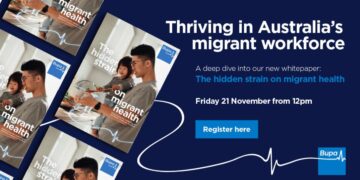As countries across the world compete for talent, Australia’s universities are taking transnational education (TNE) to the next level. By opening branch campuses, research centres, and forming international partnerships, they are helping graduates develop the skills needed for emerging roles.
These efforts create pathways for graduates to work internationally, positioning Australian universities as the force behind the shaping of a truly global workforce. With talent shortages, demographic shifts, and domestic pressures on the rise, Australia’s presence overseas is becoming increasingly key to maintaining its competitive edge in higher education and workforce development internationally.
From student pipelines to global partnerships
Transnational education has long been at the heart of Australia’s internationalisation agenda. For decades, it was largely viewed as a student pipeline, used to attract international learners, diversify revenue, and strengthen institutional brands abroad.
International students are increasingly pursuing paths beyond studying in Australia, entering the local workforce directly. Between 2019 and 2022, the proportion of overseas students studying offshore via Australian providers increased from 22% to 40%, according to Universities Australia.
There has been a transition towards partnering with institutions across Asia, the Middle East, and Africa to co-develop programmes in STEM, AI, and sustainability, disciplines playing a central role in driving innovation to new heights. These new relationships centre around research collaboration and shared capacity-building, rather than one-way mobility, thereby forging strong, long-lasting, and mutually beneficial arrangements.
The University of Western Australia’s planned Mumbai campus exemplifies this shift. By situating itself within India’s rapidly expanding education and technology ecosystem, UWA aims to become an active participant in the region’s innovation and skills landscape. Similarly, Monash University’s recent billion-dollar investment in Kuala Lumpur, backed by Prime Minister Anthony Albanese, will focus on high-impact research and regional innovation, embedding the institution within Southeast Asia’s growing educational economy.
Talent pressures
As it stands, Australia’s universities face rising operational costs, and are overly reliant on international tuition fees. With inbound student flows from China and parts of Southeast Asia becoming more unpredictable, the sector’s exposure to, and impact from, external fluctuation has become painfully clear.
Skills shortages continue to add pressure on employers, the government and institutions alike. Recent visa reforms, including the rollout of the new Skills in Demand (SID) visa and the expansion of employer‑sponsored visa places to 44,000, underline the shift toward strategic hiring of overseas talent. This regulatory push is prompting companies and institutions to rethink where talent is located. Institutions are planning for the long term by building relationships overseas, producing global graduates with dual‑accredited programmes that are going to be integral to solving Australia’s skills-shortage.
A race for global talent
Australia’s leading universities are competing directly with counterparts from the United Kingdom, the United States, and Europe to form partnerships in high-growth regions. The UK government recently announced plans for several of its top universities, including Lancaster University, University of Southampton, York and the University of Surrey, to open campuses in India.
Australia, however, is already moving quickly and thinking ahead. Its institutions are investing heavily in Southeast Asia as shown by the recent investment from Monash in Kuala Lumpur. The campus will offer 35 extra courses in priority areas for Malaysia, Australia and across the global workforce in fields such as, cyber security, climate change and sustainability, healthcare and digital health, semiconductor and advanced manufacturing, banking and finance. The race is not simply for student numbers, but for access to the next generation of globally skilled workers.
In this new landscape, graduates from Australian TNE programs gain a dual advantage: internationally recognised credentials and experience that’s relevant to local markets. This creates opportunities for employers to tap into talent with dual-accredited degrees.
Technology, employability, and the hybrid workforce
As universities expand globally, they are also rethinking what employability means. Artificial intelligence is automating many entry-level roles at scale, making traditional graduate pathways less predictable.
New Australian Edtech platforms are leading the way in connecting students directly with employers, internships, and project-based work opportunities while they complete their degrees. By integrating employability into the learning journey, rather than leaving it as an afterthought, universities are helping students graduate with both credentials and experience, a vital edge in a competitive global job market.
This approach from Alumly reflects a broader redefinition of education itself. As hybrid work and cross-border collaboration become the norm, the value of a degree will depend not only on academic knowledge but on real-world application, digital fluency, and international exposure.
Looking to the future
Australia’s transnational education sector stands at a crossroads. The next decade will determine whether it remains a global education powerhouse or yields ground to faster-moving competitors. Through smart investments, innovative partnerships, advanced technology, and an emphasis on cross-border employability, Australian institutions and employers are gaining a competitive edge in building a future-ready global workforce.
Emma Prodromou is the Global Business Expansion & Immigration Manager at Mauve Group. She is responsible for ensuring immigration compliance for global workers, researchers, and faculty staff within the international education sector and beyond. Emma works closely with immigration partners, consular officials, and embassies, and also supports clients in establishing overseas entities. Emma can be contacted via email here.
















